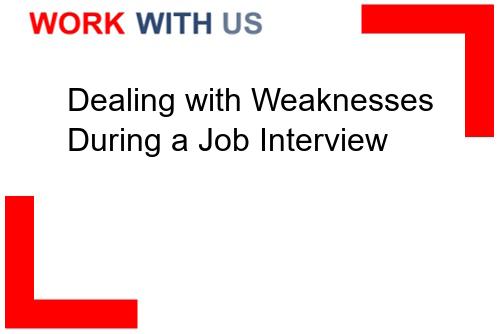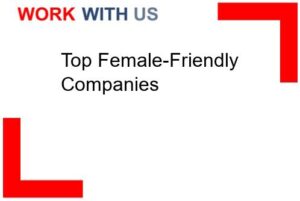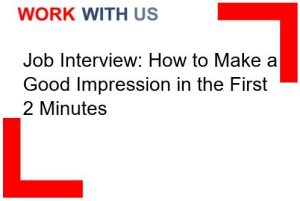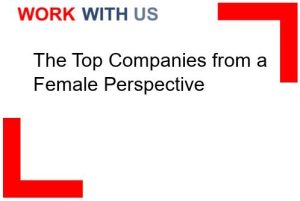Dealing with Weaknesses During a Job Interview
Job interviews can be nerve-wracking experiences for many individuals. The pressure to present oneself in the best possible light can often lead to anxiety and stress. One aspect that often causes candidates to stumble is discussing their weaknesses. However, addressing weaknesses during a job interview can be an opportunity to demonstrate self-awareness, growth, and the ability to overcome challenges. By approaching this topic with confidence and a strategic mindset, candidates can turn their weaknesses into strengths and leave a lasting impression on the interviewer.
First and foremost, it is crucial for candidates to prepare in advance for the question about weaknesses. Reflecting on personal and professional experiences can help identify areas that need improvement. It is important to choose a weakness that is genuine and relevant to the job at hand. Candidates should avoid mentioning weaknesses that are essential to the role or that may raise red flags for the interviewer. Instead, they should focus on weaknesses that can be addressed through learning and development.
Once a candidate has identified a suitable weakness, it is essential to frame it in a positive light. Rather than simply stating the weakness, they should emphasize the steps taken to overcome it. For example, if a candidate struggled with public speaking, they could mention joining a Toastmasters club to improve their communication skills. By highlighting the proactive measures taken to address the weakness, candidates demonstrate their commitment to personal growth and self-improvement.
Furthermore, candidates should showcase their ability to learn from their weaknesses. They can discuss specific instances where they faced challenges and how they used those experiences as opportunities for growth. Sharing stories of overcoming obstacles not only demonstrates resilience but also highlights the candidate’s problem-solving skills and adaptability. This approach allows the interviewer to see weaknesses as temporary setbacks rather than permanent limitations.
Another effective strategy is to discuss how weaknesses can be turned into strengths. Candidates can explain how they have leveraged their weaknesses to develop complementary skills. For instance, if a candidate struggled with time management, they could mention how they implemented effective organizational tools and techniques to improve their productivity. By showcasing the ability to transform weaknesses into strengths, candidates demonstrate their resourcefulness and determination.
In addition to framing weaknesses positively, candidates should also emphasize their willingness to seek feedback and learn from others. This shows humility and a desire for continuous improvement. Candidates can mention instances where they actively sought feedback from mentors, supervisors, or colleagues and how they used that feedback to enhance their performance. This approach not only highlights the candidate’s ability to collaborate and work well with others but also their commitment to personal and professional growth.
Lastly, candidates should practice their response to the weakness question to ensure a confident and concise delivery. By rehearsing their answer, candidates can avoid rambling or appearing unsure. It is important to strike a balance between being honest and not dwelling too much on the weakness. Candidates should keep their response focused, highlighting the steps taken to address the weakness and the positive outcomes achieved.
In conclusion, addressing weaknesses during a job interview can be an opportunity for candidates to showcase their self-awareness, growth mindset, and ability to overcome challenges. By preparing in advance, framing weaknesses positively, highlighting personal growth, showcasing the ability to turn weaknesses into strengths, emphasizing a willingness to seek feedback, and practicing their response, candidates can effectively navigate this question and leave a lasting impression on the interviewer. Ultimately, it is through acknowledging and addressing weaknesses that individuals can demonstrate their potential for growth and success in the professional realm.
Strategies for addressing weaknesses and turning them into strengths during a job interview
Strategies for Addressing Weaknesses and Transforming Them into Strengths during a Job Interview
During a job interview, candidates are often faced with the daunting task of discussing their weaknesses. While it may seem counterintuitive to highlight areas of improvement, addressing weaknesses in a thoughtful and strategic manner can actually work in a candidate’s favor. By demonstrating self-awareness, a willingness to learn, and a proactive approach to personal growth, candidates can effectively turn their weaknesses into strengths. This comprehensive guide explores various strategies that individuals can employ to address weaknesses during a job interview and transform them into valuable assets.
One effective strategy for addressing weaknesses during a job interview is to focus on self-awareness. Candidates should take the time to reflect on their strengths and weaknesses before the interview, identifying areas where they may need improvement. By acknowledging their weaknesses, candidates can demonstrate honesty and self-awareness, which are highly valued traits in the workplace. For instance, a candidate might say, “While I excel at project management and problem-solving, I have identified public speaking as an area where I could use some improvement. However, I have been actively working on this weakness by attending public speaking workshops and seeking opportunities to present in front of small groups.”
Another strategy is to showcase a proactive approach to personal growth. Employers appreciate candidates who take the initiative to address their weaknesses and actively seek opportunities for improvement. Candidates can discuss specific steps they have taken or are planning to take to overcome their weaknesses. For example, a candidate might mention, “To address my weakness in time management, I have recently started using productivity tools and techniques such as time blocking and prioritization. I am also considering enrolling in a time management course to further enhance my skills in this area.”
Furthermore, candidates can emphasize their ability to learn from past experiences and turn weaknesses into strengths. By sharing examples of how they have successfully overcome challenges in the past, candidates can demonstrate resilience and a growth mindset. For instance, a candidate might explain, “In my previous role, I struggled with delegating tasks to others due to a fear of losing control. However, I recognized this weakness and actively sought opportunities to delegate responsibilities to my team members. Through this experience, I learned the importance of trust and collaboration, and I am now much more comfortable with delegating tasks.”
Additionally, candidates can highlight transferable skills or strengths that can compensate for their weaknesses. By showcasing their ability to adapt and leverage their existing strengths, candidates can demonstrate their potential to excel in the role. For example, a candidate might say, “While I may not have extensive experience in the specific software your company uses, I have a strong foundation in learning new technologies quickly. In my previous role, I successfully adapted to various software platforms within a short period, and I am confident that I can do the same in this position.”
Moreover, candidates can discuss their commitment to continuous learning and professional development. By expressing a genuine enthusiasm for acquiring new skills and knowledge, candidates can showcase their dedication to personal growth. For instance, a candidate might mention, “I am a firm believer in lifelong learning and staying updated with industry trends. I regularly attend conferences, webinars, and workshops to expand my knowledge and skills. I am also an avid reader of industry publications and actively participate in online forums to engage with professionals in my field.”
In conclusion, addressing weaknesses during a job interview requires a strategic approach that demonstrates self-awareness, a proactive mindset, and a commitment to personal growth. By focusing on these strategies, candidates can effectively turn their weaknesses into strengths and leave a lasting impression on potential employers. By showcasing their ability to learn from past experiences, highlighting transferable skills, and expressing a genuine enthusiasm for continuous learning, candidates can position themselves as valuable assets to any organization.
Overcoming weaknesses: how to effectively communicate your efforts towards self-improvement in a job interview
Overcoming weaknesses is a crucial aspect of personal and professional growth. In a job interview, effectively communicating one’s efforts towards self-improvement can leave a lasting impression on the interviewer. It showcases the candidate’s self-awareness, willingness to learn, and determination to excel in their role. By following a few key strategies, individuals can effectively convey their commitment to self-improvement and turn their weaknesses into strengths.
Acknowledge and Accept Weaknesses
The first step towards overcoming weaknesses is acknowledging and accepting them. It is essential for individuals to have a clear understanding of their limitations and areas that require improvement. By recognizing their weaknesses, candidates can demonstrate self-awareness and a willingness to address these areas. During a job interview, it is important to be honest about weaknesses while also highlighting the steps taken to overcome them.
Demonstrate a Growth Mindset
A growth mindset is the belief that abilities and intelligence can be developed through dedication and hard work. Candidates can effectively communicate their efforts towards self-improvement by showcasing a growth mindset. They can discuss instances where they actively sought feedback, engaged in continuous learning, or took on challenging projects to enhance their skills. By emphasizing their commitment to personal and professional development, candidates can demonstrate their ability to adapt and grow in a dynamic work environment.
Highlight Learning Opportunities
Another effective way to communicate efforts towards self-improvement is by highlighting learning opportunities pursued outside of the workplace. Candidates can discuss relevant courses, certifications, or workshops they have completed to enhance their skills. Additionally, involvement in professional organizations or volunteering experiences can showcase a proactive approach towards self-improvement. By emphasizing these learning opportunities, candidates can demonstrate their dedication to staying updated and continuously improving their abilities.
Provide Specific Examples
When discussing efforts towards self-improvement, it is crucial to provide specific examples that highlight growth and progress. Candidates can share instances where they identified a weakness, developed a plan of action, and successfully addressed it. For example, a candidate could discuss how they struggled with public speaking but took a public speaking course, joined a toastmasters club, and eventually became confident in delivering presentations. By sharing concrete examples, candidates can effectively demonstrate their ability to overcome weaknesses and achieve personal growth.
Discuss Feedback and Mentorship
Candidates can also communicate their efforts towards self-improvement by discussing the role of feedback and mentorship in their journey. They can highlight instances where they actively sought feedback from supervisors, colleagues, or mentors and implemented the suggestions to enhance their performance. Additionally, candidates can discuss the impact of mentorship relationships on their personal and professional development. By emphasizing the importance of feedback and mentorship, candidates can showcase their openness to learning from others and their commitment to continuous improvement.
In conclusion, effectively communicating efforts towards self-improvement in a job interview is essential for showcasing personal and professional growth. By acknowledging weaknesses, demonstrating a growth mindset, highlighting learning opportunities, providing specific examples, and discussing feedback and mentorship, candidates can effectively convey their commitment to self-improvement. Employers value individuals who are self-aware, adaptable, and dedicated to enhancing their skills. By effectively communicating efforts towards self-improvement, candidates can leave a positive and lasting impression on interviewers, increasing their chances of securing the desired job opportunity.
The power of self-awareness: utilizing weaknesses as opportunities for growth in a job interview
In the competitive world of job interviews, self-awareness can be a powerful tool for success. Understanding one’s weaknesses and utilizing them as opportunities for growth can impress interviewers and set candidates apart from the crowd. By acknowledging and addressing their limitations, individuals demonstrate a level of maturity and self-improvement that employers value.
During a job interview, candidates who display self-awareness show that they have taken the time to reflect on their strengths and weaknesses. This introspection allows them to present a more authentic and genuine version of themselves. Rather than attempting to hide or downplay their weaknesses, they embrace them as areas for improvement. This level of honesty and self-reflection can make a lasting impression on interviewers.
Moreover, self-awareness enables candidates to proactively address their weaknesses in a job interview. Instead of waiting for the interviewer to ask about their limitations, self-aware individuals take the initiative to discuss them openly. By doing so, they demonstrate a proactive approach to personal growth and development. This willingness to confront and tackle weaknesses head-on showcases their determination and resilience.
Furthermore, utilizing weaknesses as opportunities for growth allows candidates to showcase their ability to learn and adapt. When discussing their weaknesses, self-aware individuals can highlight specific steps they have taken to overcome them. Whether through additional training, seeking mentorship, or engaging in self-study, they demonstrate a commitment to self-improvement. This not only shows interviewers that they are capable of learning from their mistakes but also that they possess the drive to continuously develop their skills.
In addition, self-awareness fosters humility in job interviews. Candidates who are aware of their weaknesses are less likely to come across as arrogant or overconfident. Instead, they approach the interview with a sense of humility, acknowledging that they still have room to grow. This humility can be refreshing to interviewers, as it shows that the candidate is open to feedback and willing to learn from others.
Moreover, self-awareness allows candidates to effectively communicate their weaknesses without undermining their overall suitability for the job. By framing their weaknesses as opportunities for growth, individuals can emphasize their strengths and demonstrate how they have overcome challenges in the past. This balanced approach showcases their ability to navigate obstacles and turn them into stepping stones towards success.
Furthermore, self-awareness enables candidates to align their weaknesses with the requirements of the job. By understanding the specific skills and qualities sought by the employer, individuals can tailor their weaknesses to highlight areas that are less critical to the role. This strategic approach allows them to present themselves as well-rounded candidates who possess the necessary strengths to excel in the position.
In conclusion, the power of self-awareness in a job interview cannot be underestimated. By acknowledging and utilizing weaknesses as opportunities for growth, candidates demonstrate maturity, authenticity, and a commitment to self-improvement. Through proactive self-reflection, individuals can address their weaknesses head-on, showcasing their ability to learn and adapt. Moreover, self-awareness fosters humility and effective communication, allowing candidates to present themselves as well-rounded individuals who are well-suited for the job. In a competitive job market, harnessing the power of self-awareness can be the key to standing out and securing that coveted position.
Showcasing resilience and adaptability: highlighting your ability to overcome weaknesses in a job interview
Showcasing Resilience and Adaptability: Highlighting the Ability to Overcome Weaknesses in a Job Interview
In a job interview, the ability to showcase resilience and adaptability is crucial for demonstrating one’s potential to overcome weaknesses. Employers seek candidates who can navigate challenges, learn from setbacks, and grow both personally and professionally. By effectively highlighting their resilience and adaptability, job seekers can present themselves as valuable assets to any organization.
Recognizing Weaknesses and Taking Responsibility
One way to showcase resilience and adaptability in a job interview is by acknowledging weaknesses and taking responsibility for them. Rather than shying away from discussing areas of improvement, a candidate can demonstrate self-awareness and a willingness to grow. By openly discussing weaknesses, they show that they are not afraid to confront challenges head-on and are committed to personal development. This level of honesty and accountability can impress interviewers and highlight the candidate’s ability to adapt and overcome obstacles.
Providing Examples of Overcoming Challenges
Another effective strategy for showcasing resilience and adaptability is by providing concrete examples of overcoming challenges in the past. By sharing stories of how they have successfully navigated difficult situations, candidates can demonstrate their ability to adapt to new circumstances and persevere in the face of adversity. These examples can range from professional setbacks to personal struggles, showcasing the candidate’s resilience in various aspects of life. Sharing such stories not only highlights their ability to overcome weaknesses but also provides evidence of their problem-solving skills and determination.
Demonstrating a Growth Mindset
A growth mindset is essential for showcasing resilience and adaptability. Candidates can demonstrate this mindset by emphasizing their eagerness to learn, grow, and embrace new experiences. They can discuss instances where they actively sought out opportunities for self-improvement, such as taking on challenging projects or pursuing additional education. By showcasing a growth mindset, candidates show that they are not afraid of change and are willing to adapt their skills and knowledge to meet evolving demands. This mindset is highly valued by employers, as it indicates a candidate’s ability to thrive in dynamic work environments.
Highlighting Transferable Skills
Resilience and adaptability often go hand in hand with possessing a range of transferable skills. Candidates can highlight these skills by drawing connections between their past experiences and the requirements of the job they are applying for. For example, if the position requires problem-solving abilities, a candidate can discuss how they have successfully tackled complex issues in previous roles. By showcasing their transferable skills, candidates demonstrate their ability to adapt their existing strengths to new challenges, further emphasizing their resilience and adaptability.
Discussing Lessons Learned from Failures
Lastly, candidates can showcase resilience and adaptability by discussing the lessons they have learned from past failures. By openly acknowledging and reflecting on their mistakes, candidates demonstrate their ability to bounce back and grow from setbacks. They can discuss how they have used these failures as opportunities for self-improvement and how they have implemented changes to avoid similar pitfalls in the future. This level of self-reflection and growth mindset can impress interviewers, as it shows that the candidate is not discouraged by setbacks but rather uses them as stepping stones towards success.
In conclusion, showcasing resilience and adaptability in a job interview is crucial for demonstrating the ability to overcome weaknesses. By acknowledging weaknesses, providing examples of overcoming challenges, demonstrating a growth mindset, highlighting transferable skills, and discussing lessons learned from failures, candidates can effectively showcase their resilience and adaptability. These qualities are highly valued by employers, as they indicate a candidate’s potential to thrive in dynamic work environments and contribute to the growth and success of the organization.



